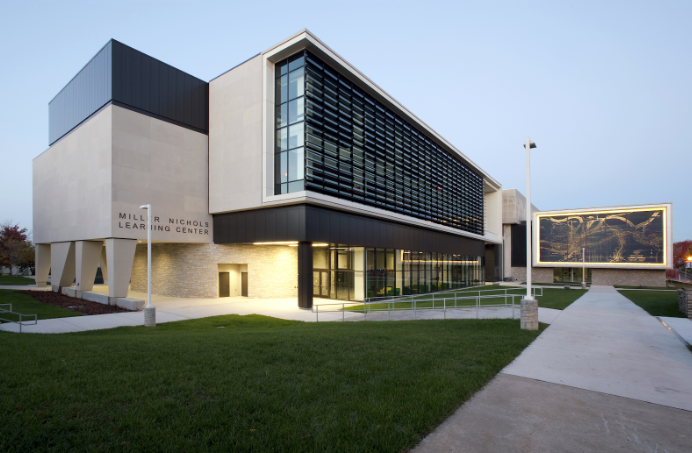The proposal to rename the Miller Nichols Library has been a rotating debate for years. The death of George Floyd at the hands of Minneapolis police brought it back to the attention of university leaders, as students push for a more inclusive campus environment for the Black, Indigenous, People of Color (BIPOC) students, staff and faculty at UMKC.
Miller Nichols, the library’s namesake, was the son of J.C. Nichols, a real estate developer who is responsible for the segregation many Black Kansas Citians still struggle with decades later. The library was named in honor of Nichols after he donated $1.5 million to complete the building in 1989.
UMKC’s Student Government Association President Brandon Henderson supports the renaming movement.
“While they were not the same people, Miller Nichols upheld a lot of the ideals and business practices his father established at the expense of the Black community,” said Henderson. “Renaming the building will start the effort to address Kansas City’s long history of systemic racism.”
The Kansas City Parks and Recreation board voted unanimously in June to remove Nichols’ name from the well-known fountain on the Plaza and changed the name of the shopping district’s central street to Mill Street Parkway.
Now the UMKC community wants the same action taken to rename the library. The request to rename the library was just one of a list of demands a group of students sent in a letter to Chancellor Mauli Agrawal, Henderson told UNews.
“Renovating the Culture House, expanding the heavily-trafficked Multicultural Student Affairs office, and hiring and retaining more Black staff and faculty will help to support a more inclusive school for UMKC’s BIPOC community,” Henderson said.
Agrawal appears to be open to the idea of changing the name and is working with students to address the requests. In a June letter, he established a task force centered around “evaluating the Miller Nichols Library name and context around the naming of the library.”
The letter also said all faculty and staff would undergo training on recognizing and addressing microaggressions and implicit bias by year’s end. Agrawal also established a Minority Student
Leadership Task Force and a Recruiting and Retention Task Force focused on serving minority faculty, staff and students.
“Our commitment to make everyone on our campus safe and free from oppression so they can fully participate in our multicultural community demands it,” said Agrawal.
An earlier version of this article incorrectly attributed a quote from Mr. Henderson to a student letter. This has been corrected in the article.
bkhough@mail.umkc.edu








